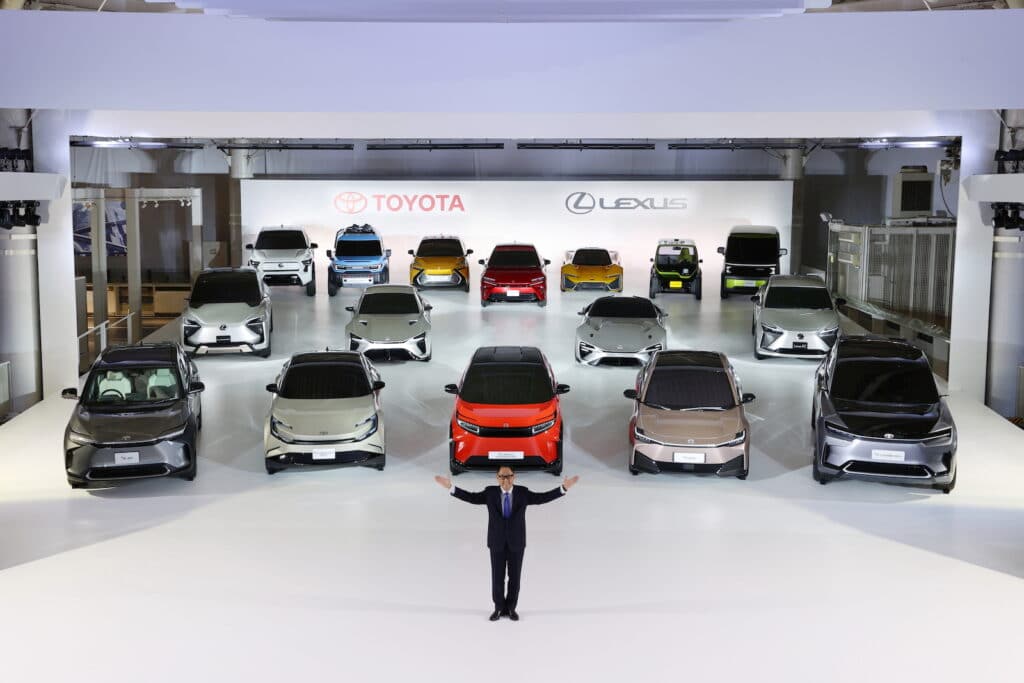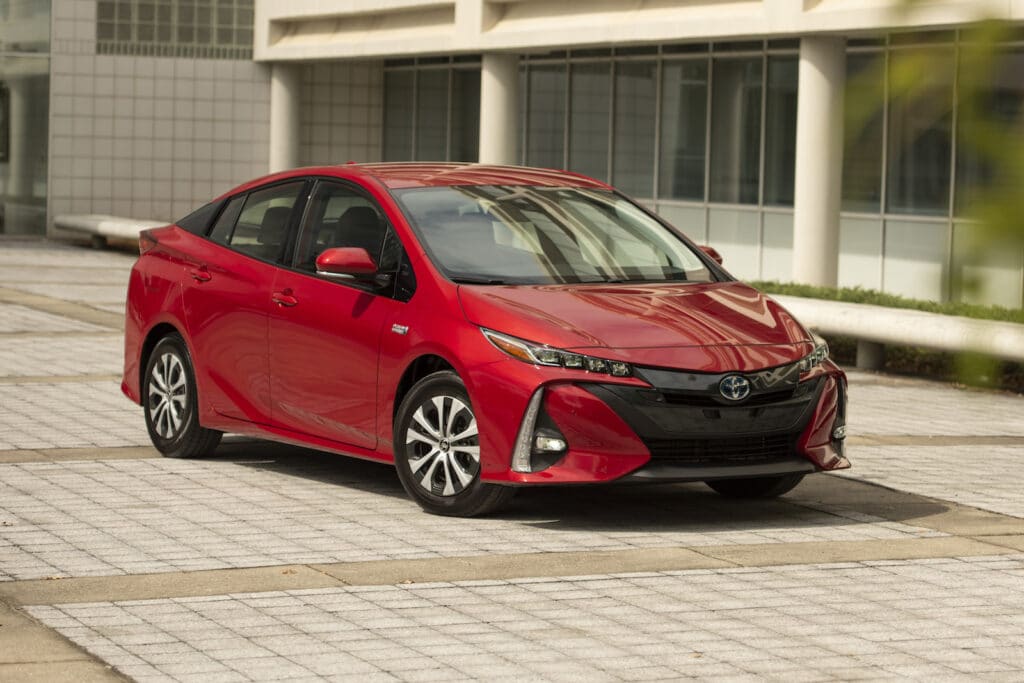Toyota appears to be on a course to become the first automaker to use next-generation solid-state batteries in a high-volume production vehicle.

Solid-state technology is seen by many as a potential breakthrough technology that could deliver the added range, shorter charging times and reduced costs needed to take electric vehicles truly mainstream. The batteries also are expected to eliminate the risk of fire associated with today’s lithium-ion technology.
Toyota is aiming to “commercialize” solid-state batteries during the first half of this decade, Gill Pratt, Toyota’s top scientist, said during an appearance on Autoline television taped at the 2022 Consumer Electronics Show.
Solid-state could be the breakthrough the industry needs
Most automakers are now working to bring solid-state batteries to market, whether working in-house or partnering with outside battery companies. But most have cautioned they don’t see the technology as being ready for retail applications before the second half of the decade. Until now, Nissan has been the only automaker to put a timeframe around commercializing the new batteries.

During a November news conference, the second-largest Japanese automaker said it will invest $1.23 billion, to develop solid-state batteries, launching a pilot plant in 2024. It aims to have them in mass production by 2028.
Until now, solid-state batteries have been limited to laboratory applications. A number of manufacturers are believed to have begun testing scaled-up cells. According to sources out of Japan, Toyota has been running a prototype Tundra pickup using the technology.
First application to be in a hybrid
During the Autoline interview, Pratt declined to reveal precisely where solid-state batteries would first show up in a Toyota product. There had been speculation that might be in a battery-electric vehicle, such as one of the new bZ, or Beyond Zero, models the company is developing.
Surprisingly, Pratt said the first application will be a hybrid. But it’s not clear if that means a conventional or plug-in hybrid model. Toyota is more cautious about all-electric models, CEO Akio Toyoda forecasting that hybrids will continue to generate about two-thirds of the automaker’s total global sales by the end of this decade.

Some are speculating solid-state technology could debut in the iconic Toyota Prius. The once wildly popular hybrid has lost momentum during the last several years and Toyota insiders have told TheDetroitBureau.com that the automaker is looking for ways to revitalize the nameplate.
A “tougher test”
Using solid-state technology in a hybrid actually would be tougher on the batteries because of the duty cycle of a hybrid. Vehicles like the Prius are constantly charging and discharging their batteries, said Sam Abuelsamid, principal auto analyst with Guidehouse Insights.
That would provide a “tougher test” of the technology, Pratt also said, noting, “We want to start by putting them in vehicles where we believe that they’re both the most well suited in terms of lifetime but also that will exercise them sufficiently so that as costs continue to come down, we can roll them out in the future” in battery-electric vehicles.
Solid-state batteries actually use much the same basic chemistry as lithium-ion technology. But rather than the chemical slurry found in conventional batteries, solid-state cells rely on a substrate that can be made of foams or solids, such as ceramics.

Plenty of advantages
That approach virtually eliminates the risk of fire, something that has caused some embarrassing headaches for automakers and their battery suppliers. In August, Chevrolet had to recall about 142,000 Bolt EVs due to a series of battery fires. Tesla and other manufacturers have experienced their own fire problems.
But there are plenty of other potential advantages. It’s widely expected that solid-state batteries will be significantly smaller and lighter than today’s lithium-ion cells. They’re forecast to yield far higher energy density — the amount of power that can be stored in a given mass. And one of the key advantages is thought to be more rapid charging times that could allow a motorist to top off an EV’s battery pack in about the time it takes to fill up a gas tank.
The other, critical advantage is cost. Current BEV batteries average between $100 and $150 per kilowatt-hour, while the goal is to push solid-state down to somewhere below $65. For a vehicle with a 100 kilowatt-hour pack, that could yield a savings of $8,000 or more. In turn, that would help make BEVs cost-comparable to a gas-powered vehicle.







